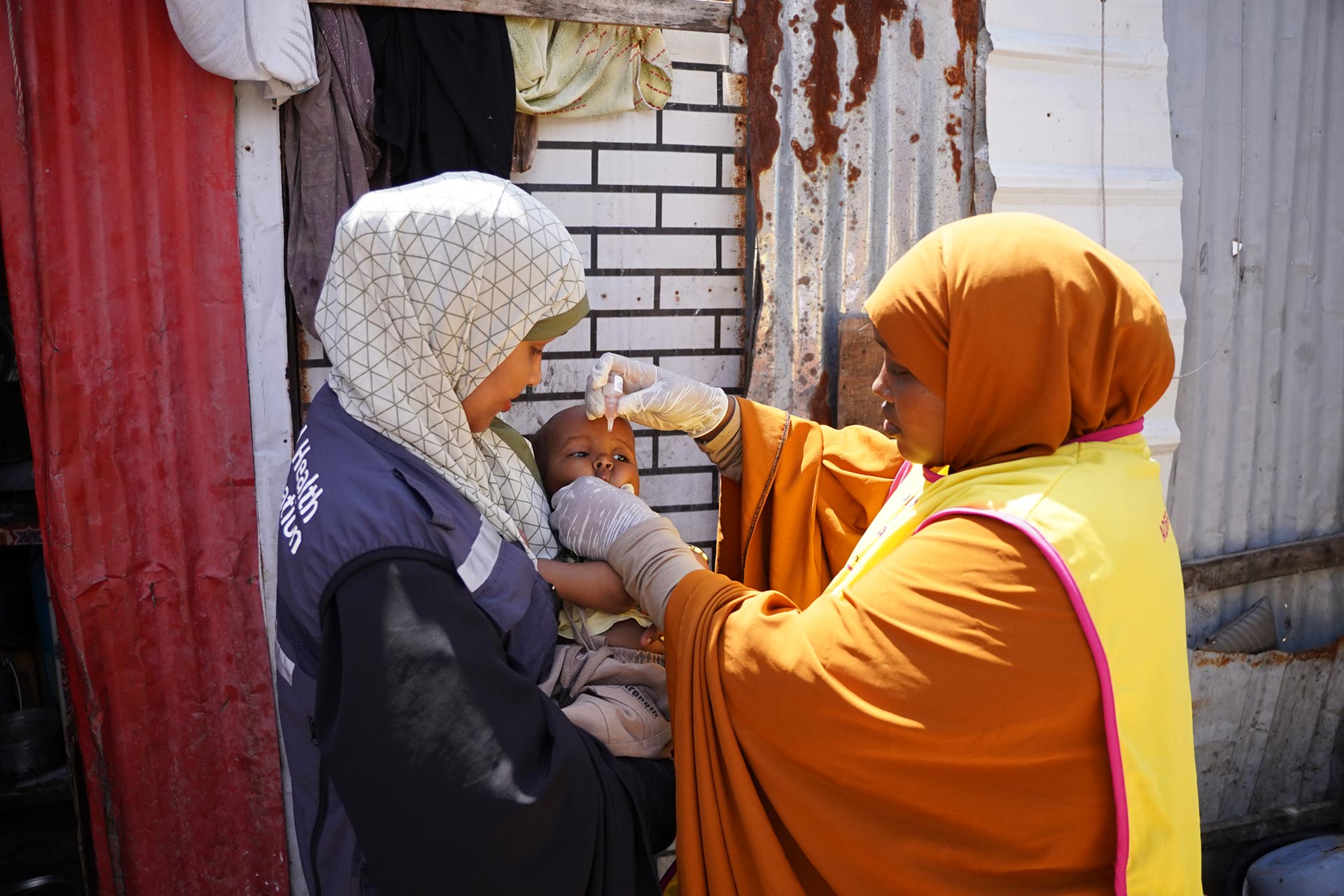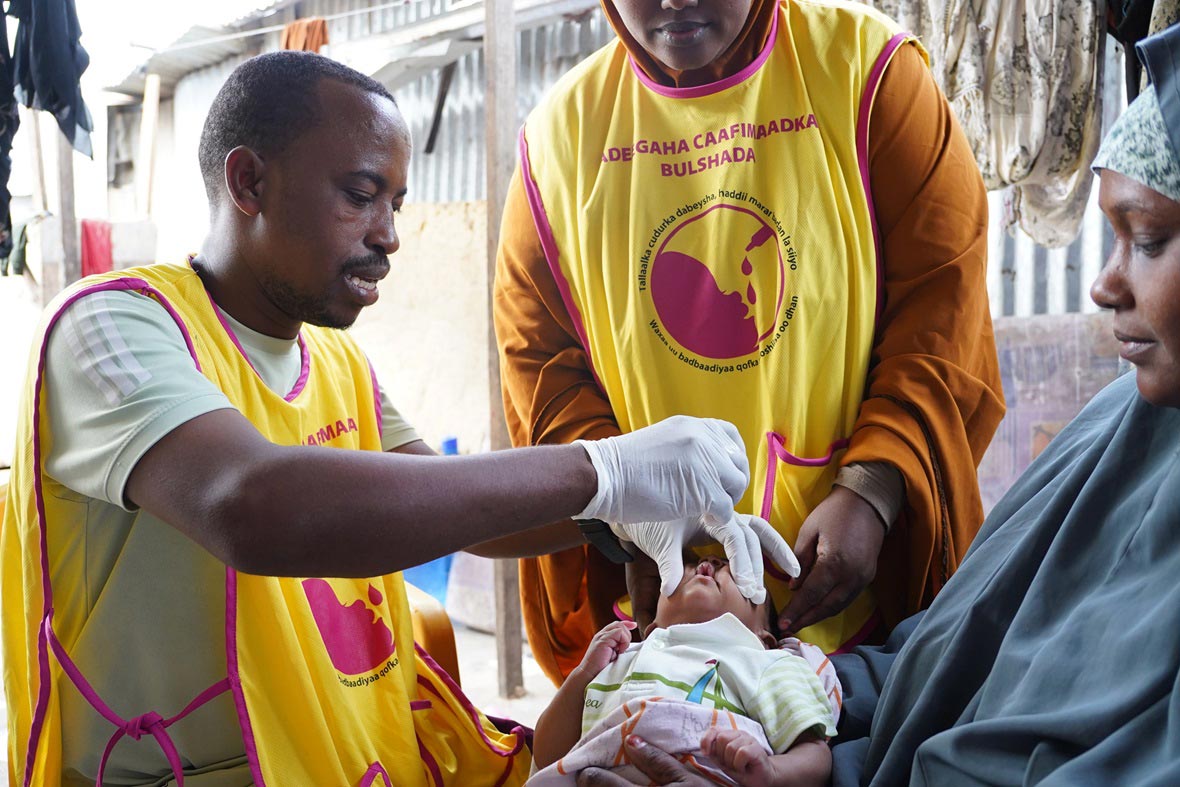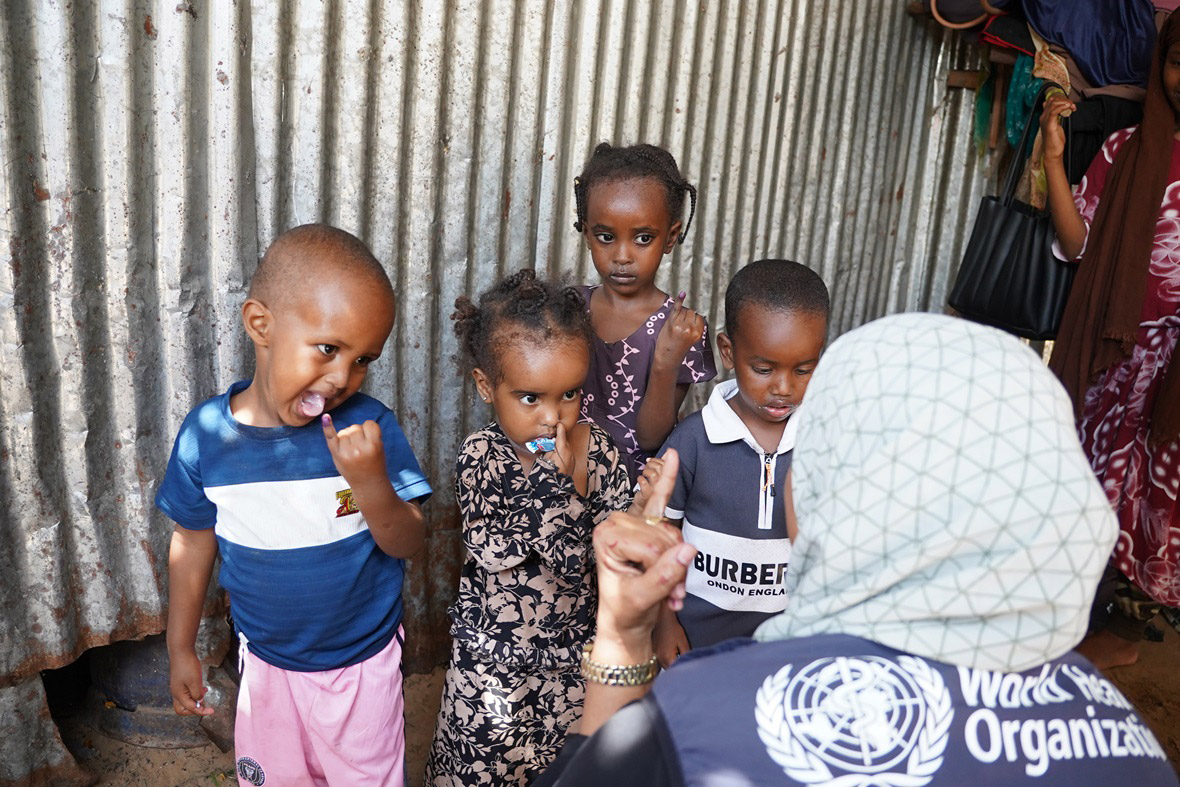 15 July 2025, Mogadishu, Somalia – The annual World Health Organization (WHO)/United Nations Children’s Fund (UNICEF) Estimates of National Immunization Coverage (WUENIC) released today reports that 70% of children in Somalia are fully vaccinated, an increase of 28% between 2012 to 2024, with steady improvements registered across all antigens since 2019.
15 July 2025, Mogadishu, Somalia – The annual World Health Organization (WHO)/United Nations Children’s Fund (UNICEF) Estimates of National Immunization Coverage (WUENIC) released today reports that 70% of children in Somalia are fully vaccinated, an increase of 28% between 2012 to 2024, with steady improvements registered across all antigens since 2019.
WUENIC presents country level immunization datasets on key infant and childhood vaccinations, allowing the identification of areas where progress has been made, where opportunities remain and where immunization coverage has declined.
Somalia has invested heavily in upping coverage rates. In 2024, the accelerated Big Catch-Up initiative, spearheaded by the Federal Ministry of Health and Human Services in collaboration with UNICEF and WHO, targeted zero-dose children – those who have never received a single vaccine – and children with partial (incomplete) vaccination. This year, multiple vaccination campaigns have been held, and pneumococcal conjugate vaccine (PCV) and rotavirus vaccines introduced to address childhood pneumonia and diarrhoea, the leading causes of death in children under 5 in Somalia.
“Immunization is one of the most cost-effective public health interventions that prevents vaccine-preventable diseases,” said Minister of Health and Human Services H.E. Dr. Ali Haji Adam. “To continue strengthening the health system in Somalia we must enhance the capabilities of our frontline health workers and increase efforts to create awareness in communities about lifesaving vaccines. We all have more work to do.”
 Expanding routine immunization coverage in Somalia has long been hampered by ongoing conflict, displacement, inaccessibility and limited health infrastructure. For decades coverage was below 50%, leaving an estimated 1.5 million children missing out on vaccines. It is encouraging to note that through the Big Catch-Up, nearly 700 000 zero-dose children received their first dose of pentavalent vaccine which protects against potentially fatal diseases like diphtheria and whooping cough.
Expanding routine immunization coverage in Somalia has long been hampered by ongoing conflict, displacement, inaccessibility and limited health infrastructure. For decades coverage was below 50%, leaving an estimated 1.5 million children missing out on vaccines. It is encouraging to note that through the Big Catch-Up, nearly 700 000 zero-dose children received their first dose of pentavalent vaccine which protects against potentially fatal diseases like diphtheria and whooping cough.
“Alongside the Big Catch-Up campaigns, Somalia has strengthened routine immunization through outreach to underserved areas in collaboration with neighbouring countries, and with the recent introduction of 2 new lifesaving vaccines, PCV and rotavirus. These efforts are vital, as over 1.5 million children have missed essential vaccines. Intensified action continues to address the ongoing polio outbreak that began in 2017,” said WHO Representative in Somalia Dr Renee Van de Weerdt.
Reliable data is a crucial pillar of any health system. To strengthen data quality, UNICEF, in collaboration with WHO, supported the Federal Ministry of Health in conducting a nationwide data quality improvement exercise across all districts and health facilities. This initiative, combined with investments in the overall immunization system and advocacy efforts, resulted in a significant improvement in data quality and vaccination rates.
 “Investments and coordinated efforts to strengthen Somalia’s child immunization programme are yielding high results,” said UNICEF Acting Representative in Somalia Nisar Syed. “For example, UNICEF is leading on improving vaccine storage capacity and the ability to keep them at the right temperature. To date, 90% of health facilities providing vaccinations have been equipped with solar-powered refrigeration. Together with the ministries of health, our dedicated partners and resilient health workers, children are being reached with lifesaving vaccines, even in some of the most difficult and hard-to-reach places.”
“Investments and coordinated efforts to strengthen Somalia’s child immunization programme are yielding high results,” said UNICEF Acting Representative in Somalia Nisar Syed. “For example, UNICEF is leading on improving vaccine storage capacity and the ability to keep them at the right temperature. To date, 90% of health facilities providing vaccinations have been equipped with solar-powered refrigeration. Together with the ministries of health, our dedicated partners and resilient health workers, children are being reached with lifesaving vaccines, even in some of the most difficult and hard-to-reach places.”
WUENIC 2024 findings that the number of zero-dose children has decreased in countries that, like Somalia, are supported by Gavi, the Vaccine Alliance, underscores the importance of investing in immunization. Key partners, including the Global Polio Eradication Initiative (GPEI), the UK Foreign, Commonwealth and Development Office (FCDO), the World Bank and the Gates Foundation have been instrumental in improving child survival rates.
Now is the time to build on these gains and sustain momentum towards the Immunization Agenda 2030 which aims to ensure that everyone, everywhere, at every age, fully benefits from vaccines to improve health and well-being.
For more information, contact:
Mohamed Osman, Federal Ministry of Health and Human Services Head of Communication and Public Engagement, This e-mail address is being protected from spambots. You need JavaScript enabled to view it
Lisa Hill, UNICEF Somalia Communication Specialist, This e-mail address is being protected from spambots. You need JavaScript enabled to view it
Khadar Hared, WHO Somalia Communication Officer, This e-mail address is being protected from spambots. You need JavaScript enabled to view it
Notes to editors:
WHO dataset: Global dashboard, country profiles, additional resources
UNICEF dataset: Overview, Full datasets, Data visualisation, Regional data visualisation, Country profiles




